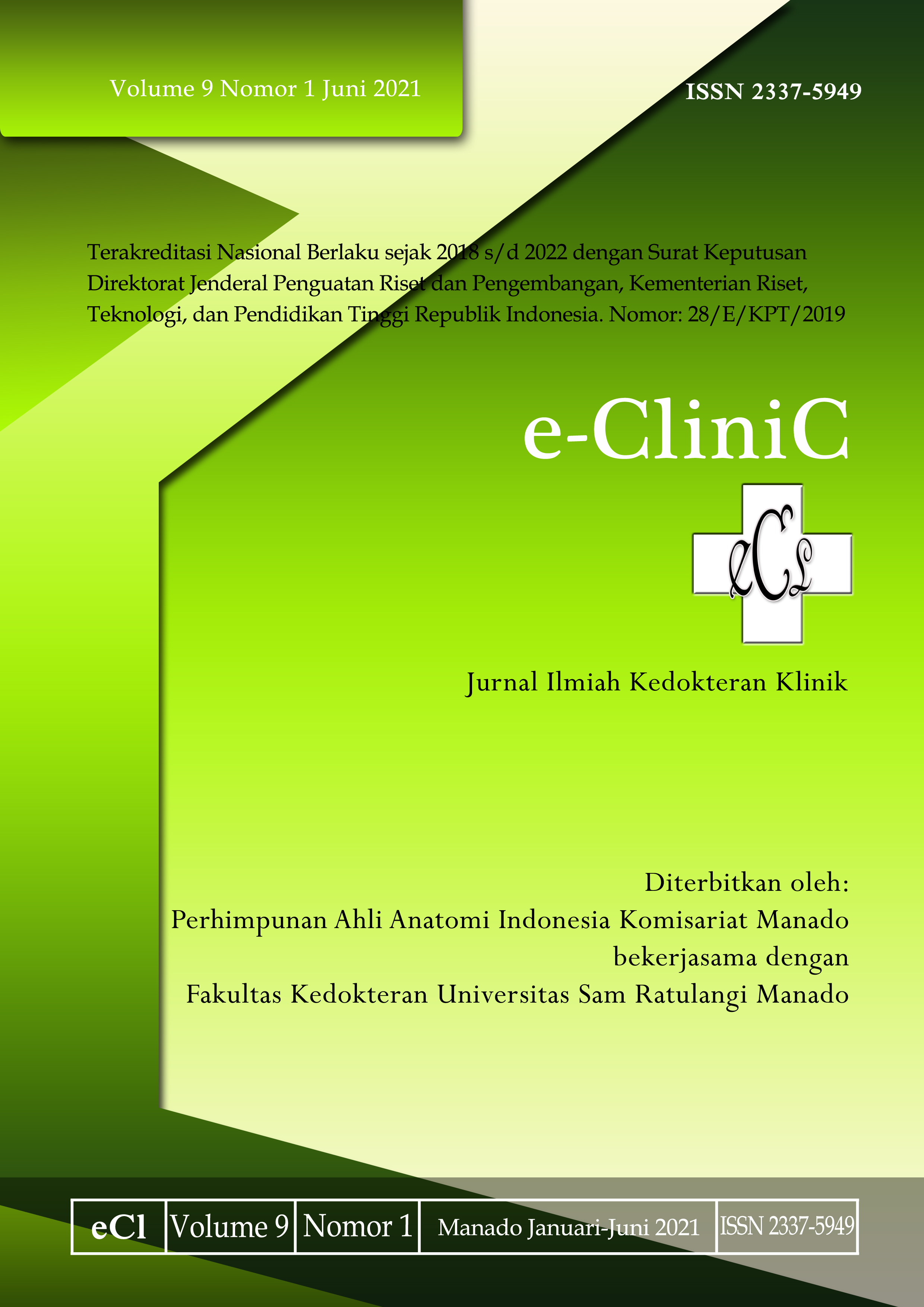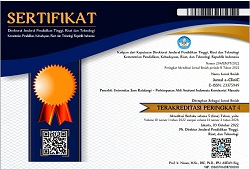Perbedaan Pengetahuan dan Sikap Remaja tentang Infeksi Menular Seksual di SMA/SMK Perkotaan dan Pedesaan
DOI:
https://doi.org/10.35790/ecl.v9i1.31856Abstract
Abstract: Premarital sexual behavior in adolescence is a high risk factor for sexually transmitted infections. Sexually transmitted infections (STIs) are infections that are generally transmitted through sexual contact. Differences in social, cultural, and economic factors were found to affect the incidence and prevalence of sexually transmitted infections between different groups in a population. These are likely caused by differences in the knowledge and attitudes of adolescents living in urban and rural areas. This study was aimed to obtain the differences in the level of knowledge and attitudes toward STIs of adolescents in urban and rural area schools. This was a descriptive study with a cross-sectional design conducted on 50 adolescents of urban senior high schools and 50 adolescents of rural senior high schools/vocational high schools. Questionnaires were distributed via email by using Google form. The results showed that adolescents living in urban areas had good knowledge about STIs meanwhile adolescents living in rural areas had fair knowledge. The attitudes about STIs of most adolescents living in urban areas and rural areas were good. In conclusion, adolescents living in urban areas had better knowledge about STIs than those living in rural areas, however, there was no significant difference in attitudes about STI between the two regions. Equal distribution of education in Indonesia is needed in urban as well as in rural areas.
Keywords: sexually transmitted infections, adolescents, knowledge, attitudes, urban and rural
Â
Abstrak: Perilaku seksual pranikah pada usia remaja merupakan faktor risiko tinggi terhadap infeksi menular seksual (IMS). Infeksi menular seksual merupakan infeksi yang umumnya ditularkan melalui hubungan seksual. Perbedaan faktor sosial, kultural maupun ekonomi dapat memengaruhi insiden dan prevalensi IMS antara kelompok yang berbeda dalam suatu populasi. Hal tersebut kemungkinan besar disebabkan oleh adanya perbedaan pengetahuan dan sikap remaja yang tinggal di wilayah perkotaan dan pedesaan. Penelitian ini bertujuan untuk mengetahui perbedaan tingkat pengetahuan dan sikap remaja terhadap IMS di sekolah wilayah perkotaan dan pedesaan. Jenis penelitian ialah deskriptif dengan desain potong lintang dan kuesioner didistribusikan secara daring menggunakan Google Form. Responden ialah 50 remaja di SMA wilayah perkotaan dan 50 remaja di SMA/SMK wilayah pedesaan. Hasil penelitian mendapatkan bahwa pengetahuan remaja tentang IMS pada siswa SMA perkotaan sebagian besar berada dalam kategori baik sedangkan pada siswa SMA/SMK pedesaan sebagian besar berada dalam kategori cukup. Sikap remaja tentang IMS pada siswa SMA/SMK perkotaan dan pedesaan sebagian besar baik. Simpulan penelitian ini ialah remaja perkotaan memiliki pengetahuan yang lebih baik mengenai IMS dibandingkan remaja di pedesaan namun tidak terdapat perbedaan sikap remaja yang bermakna mengenai IMS antara kedua wilayah. Pemerataan pendidikan di Indonesia dibutuhkan di wilayah perkotaan dan pedesaan.
Kata kunci: infeksi menular seksual, remaja, pengetahuan, sikap, perkotaan dan pedesaan
Downloads
How to Cite
Issue
Section
License
COPYRIGHT
Authors who publish with this journal agree to the following terms:
Authors hold their copyright and grant this journal the privilege of first publication, with the work simultaneously licensed under a Creative Commons Attribution License that permits others to impart the work with an acknowledgment of the work's origin and initial publication by this journal.
Authors can enter into separate or additional contractual arrangements for the non-exclusive distribution of the journal's published version of the work (for example, post it to an institutional repository or publish it in a book), with an acknowledgment of its underlying publication in this journal.
Authors are permitted and encouraged to post their work online (for example, in institutional repositories or on their website) as it can lead to productive exchanges, as well as earlier and greater citation of the published work (See The Effect of Open Access).







